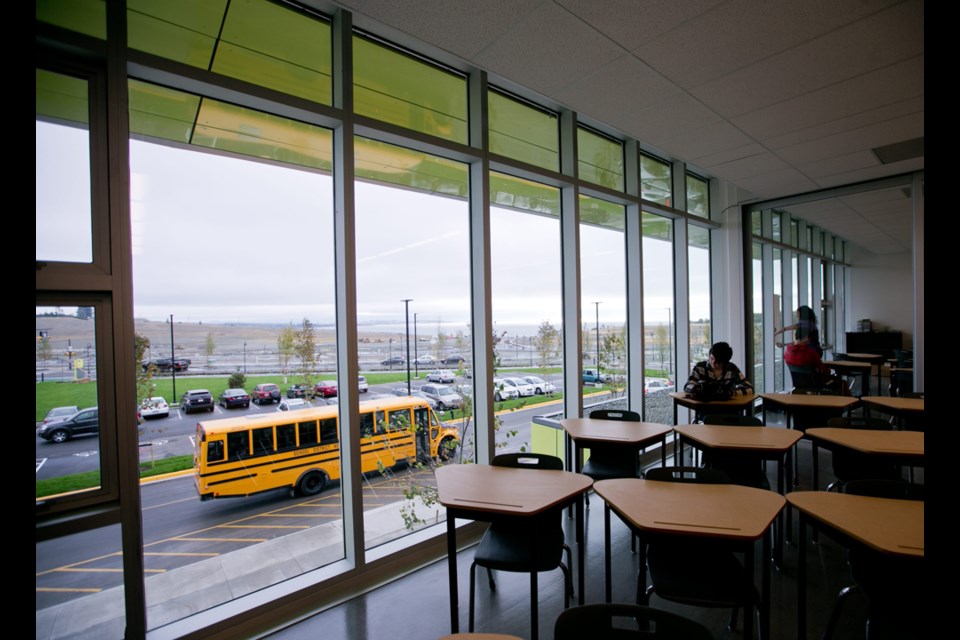B.C. school districts will be able to hire about 1,100 more teachers, counsellors and librarians this year under a new $50-million deal between the teachers’ union and the B.C. government.
The interim agreement responds to a Supreme Court of Canada ruling in November that restored class-size and composition provisions removed from teachers’ contracts in 2002.
Education Minister Mike Bernier said in a conference call with reporters that districts can immediately hire teachers and specialty teachers for the remainder of the 2016-17 year. Specialty teachers include speech-language pathologists, school psychologists, special-education teachers, counsellors and teacher-librarians.
He said the measures represent the first step in responding to the Supreme Court of Canada decision and that negotiations will continue with the B.C. Teachers’ Federation.
“Both sides have agreed that it’s not a quick, easy thing to fix, but we don’t want to wait,” he said.
Bernier said the $50 million is “new money” that will be added to his ministry budget this year and into the future.
He said the money will be sent to districts using a formula based on enrolment and other factors.
The agreement means there will be additional teachers in schools within weeks, said BCTF president Glen Hansman, but more money is needed. “It’s going to take a significantly higher investment than the $50 million announced [Thursday] to undo the damage this government has done to a generation of students.”
The total cost of responding to the court ruling has been estimated at about $300 million by the BCTF, Hansman said.
“The onus is now on the provincial government to ensure the Feb. 21 provincial budget contains the necessary funding to make full restoration possible,” he said. “Parents, teachers and the public expect as much, and we will all need to keep the pressure up to ensure that this happens.”
He said districts will allocate their funding through committees established by superintendents and presidents of union locals. “Decisions about what jobs get posted and where need to be decided jointly by those local parties, and that’s very important to us,” Hansman said.
Greater Victoria school board chairwoman Edith Loring-Kuhanga said district officials have already been talking with the Greater Victoria Teachers’ Association about what the greatest needs are. “I am happy that we’re finally getting money put back into the system that was taken away from all of our kids,” she said. “Many of our kids have grown up in the system without the proper support that they needed and now the government has finally come back with some money — about one-sixth of what they took out of the system — just before an election.”
Rob Fleming, the NDP’s education critic, welcomed the additional money, but said voters will remember the damage done to education by the B.C. Liberals since 2002. “Things that are being forced to be restored by this government, through court order, are things that were deprived of their own children.” Over a 15-year period, a lot of children have had learning resources denied to them, he said.
The battle began when Premier Christy Clark was education minister and the B.C. Liberal government dismantled teachers’ contracts by passing Bill 28 in 2002. After the bill was found unconstitutional in 2011, Clark’s government brought in similar legislation to end a teachers’ strike in 2012.
The B.C. Supreme Court found that the government had simply replaced one unconstitutional bill with another, but the B.C. Court of Appeal overturned that decision in 2015 with one justice dissenting.
Then, in a 7-2 ruling in November, the Supreme Court of Canada sided with the dissenter, Justice Ian Donald, in finding that the government infringed teachers’ constitutional rights by failing to negotiate in good faith.
The government’s current contract with the BCTF anticipated the decision and set out a process for the two sides to talk about how to move forward.



